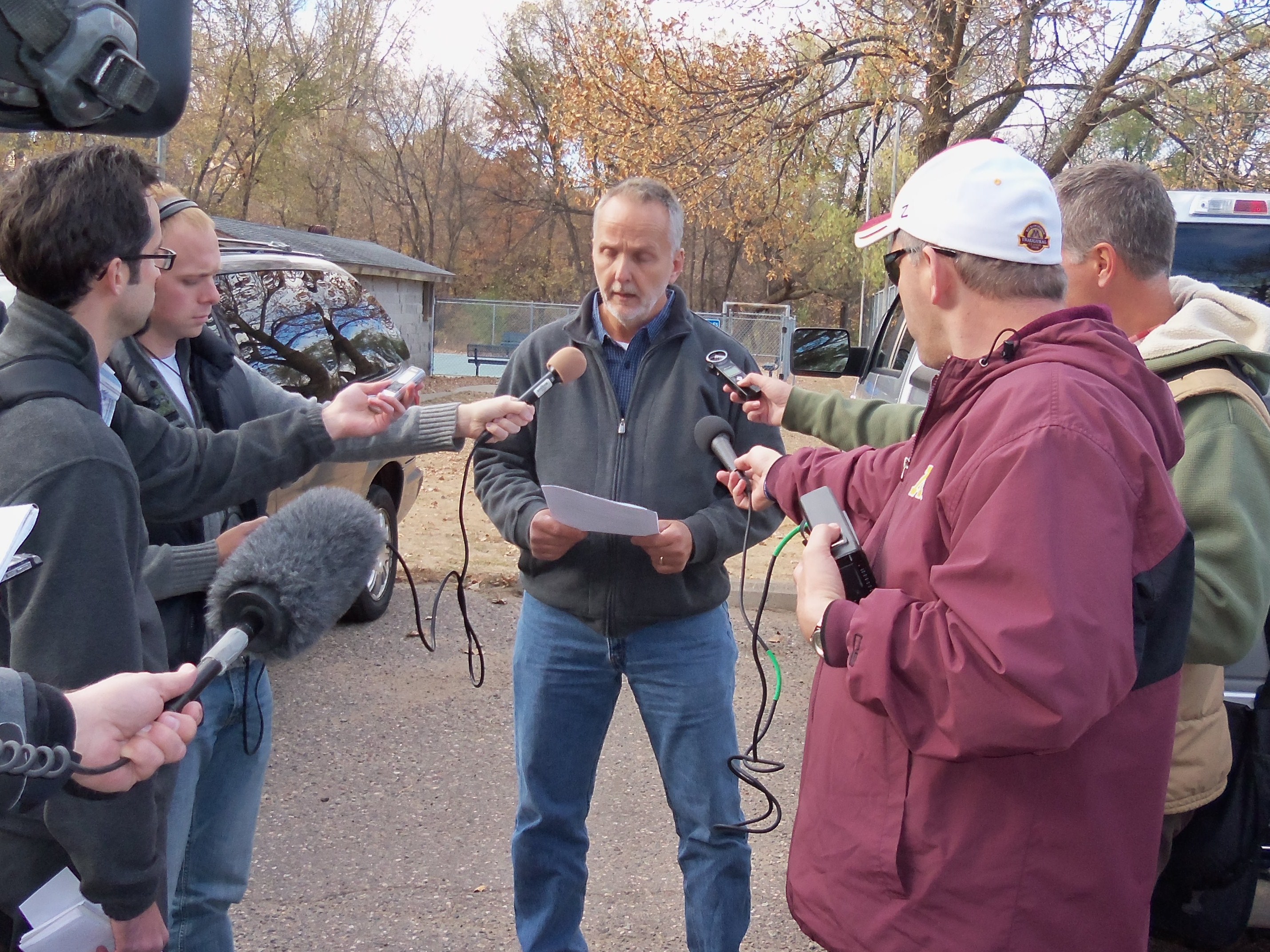by Dennis Dalman – news@thenewsleaders.com
One of these days Lyle Fleck of Sartell is going to call one of his school chums, whom he hasn’t seen in years, to tell him some startling news.
“Hey, guess what?” he’ll tell him. “I’m a barber now!”
The friend, who is a barber in Duluth, will stammer and say, “You’re a b-b-barber?! Since when?”
“Since right now,” Fleck will say.
The friend is likely to say or to think, “Wonders never cease!”
Fleck is one of 259 employees who lost their jobs when the Verso paper mill in Sartell shut down operations forever. Fleck, who was union president at the mill for Steelworkers Local 274, is one of those employees who now has a new job.
Right after graduating from high school, in 1972, Fleck worked for his father in construction. Although he lived in Sartell, he and his father would commute to a construction job in Bloomington. One of Flecks school friends was about to go to barber school. He urged Fleck to do the same, and Fleck toyed with the idea for awhile because he, too, had liked the idea of becoming a barber. But he rejected the idea because his job with his father was just fine with him.
Forty years after passing up the idea of barber school, Fleck is now studying daily at the Moler Barber School in the Twin Cities. Each day, he commutes from his Sartell home. He started studying barbering last October and will graduate from the nine-month course this summer. He already has a job option, although he must become an apprenticed barber under a master barber for a period of one year. Fleck hopes to open his own barber shop someday.
As excited as he is about his new career, Fleck has concerns about his fellow former Verso employees who may not have found a new line of work yet. But he remains quite optimistic because he’s aware most of the 259 workers have either found new jobs or are in training courses for new careers. Some are studying such subjects as refrigeration or welding at the St. Cloud Vocational College. Quite a few have found work as over-the-road truckers. The Verso human-resources person has a job with the Verso plant in Bucksport, Maine. The former union vice president now works for the paper mill in Becker.
“I can’t be sure exactly how many have found jobs,” Fleck said. “But I know a lot of them have found work or are in school. There are a lot of them attending vocational school now. They’re studying all kinds of different things.”
Fleck said the State of Minnesota and WorkForce Center personnel have been excellent in their efforts to help displaced Verso workers, including paying for career counseling and training courses.
Fleck and many Verso employees still meet now and then at the American Legion in Sauk Rapids, and hardly a day goes by he doesn’t see a former Verso employee while going about his business.
“We always wave at each other, say hello, ask how it’s going,” Fleck said.
To this day, Fleck wishes Verso were still open. The announcement it would close, he said, has been a continuing trauma for so many people who worked at that plant for as many as 30 or more years. The one constant in all of their lives, Fleck said, is “change.”
“It’s been a real big change,” he said. “We’ve all had to deal with change in one way or another. There’s a question mark behind everything. The community has been so supportive, and Mayor Joe Perske, too. He still stays in contact with me to ask how it’s going.”
One part of the change, Fleck said, is the shock many Verso workers felt when they applied for other jobs and discovered how low the wages are compared to what they had been earning at Verso. They were also disheartened to learn how many jobs do not provide any benefits.
“It’s unbelievable how low some of the pay is out there,” he said. “At Verso, we had good wages, a good union shop and all the benefits we needed. That’s gone, and now many (former) workers’ family lifestyles are going to have to change.”
One part of the constant change, for some workers, is fear of schooling. Many hadn’t been in a classroom for years, and many have had to learn all over again such things as study habits. Fleck himself has read most chapters in his big thick barbering textbook at least six times to be sure he will do well on the tests. Barbering, he said, involves more than “just” cutting hair. Good barbers must absorb a wealth of knowledge, from anatomy to human relations.
Fleck said there is no doubt some displaced workers are – or soon will be – struggling if the money crunch hits too close to home. But one reason Fleck remains optimistic is he knows what dedicated, hard workers his Verso colleagues were when the plant was thriving. He knows that kind of true grit will stand them in good stead through thick and thin.
“One thing’s for sure about the people I worked with – they weren’t lazy,” Fleck said. “They’ll get up and go at it again, no matter what.”
Fleck’s wife, Barbara, and his two grown daughters are happy for him.
“I wish the mill was still going, but it’s not going to and you have to move on, plain and simple,” Fleck said. “But I’m sure happy about going to barber school. My wife always says she can tell I’m enjoying what I’m doing.”
When May 28 rolls around, the date of the Verso disaster last year, Fleck and his former Verso colleagues plan to have a barbecue get-together to reminisce and to share ideas for their futures.




